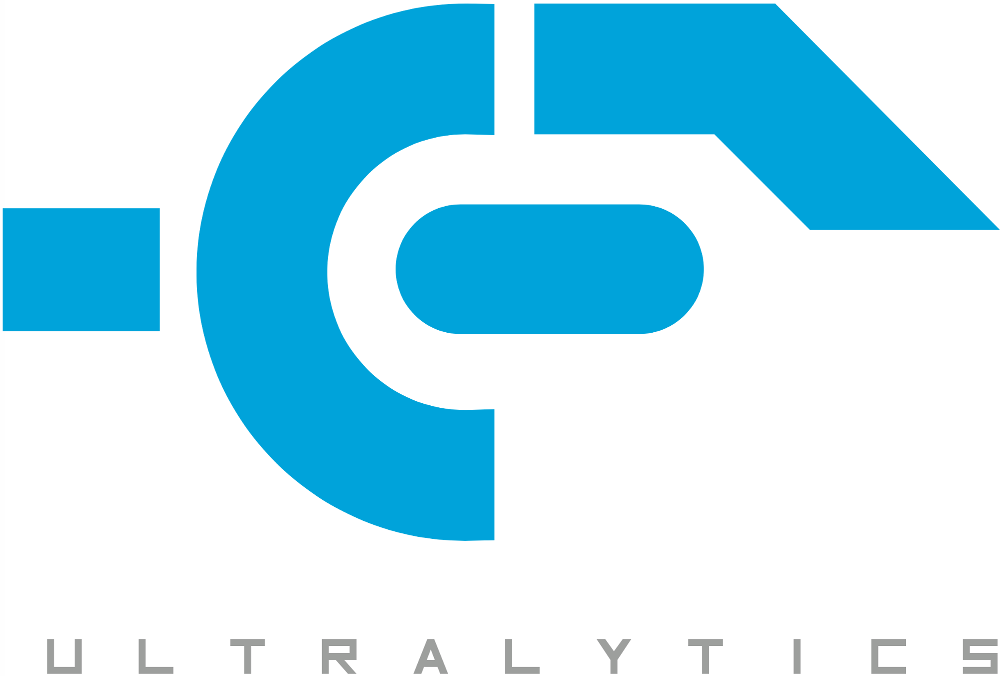6.9 KiB
Executable File
v2.2 |
v3.0 |

|
|---|
Introduction
This directory contains python software and an iOS App developed by Ultralytics LLC, and is freely available for redistribution under the GPL-3.0 license. For more information please visit https://www.ultralytics.com.
Description
The https://github.com/ultralytics/yolov3 repo contains inference and training code for YOLOv3 in PyTorch. The code works on Linux, MacOS and Windows. Training is done on the COCO dataset by default: https://cocodataset.org/#home. Credit to Joseph Redmon for YOLO (https://pjreddie.com/darknet/yolo/) and to Erik Lindernoren for the PyTorch implementation this work is based on (https://github.com/eriklindernoren/PyTorch-YOLOv3).
Requirements
Python 3.7 or later with the following pip3 install -U -r requirements.txt packages:
numpytorch >= 1.0.0opencv-python
Tutorials
Training
Start Training: Run train.py to begin training after downloading COCO data with data/get_coco_dataset.sh.
Resume Training: Run train.py --resume resumes training from the latest checkpoint weights/latest.pt.
Each epoch trains on 120,000 images from the train and validate COCO sets, and tests on 5000 images from the COCO validate set. Default training settings produce loss plots below, with training speed of 0.6 s/batch on a 1080 Ti (18 epochs/day) or 0.45 s/batch on a 2080 Ti.
from utils import utils; utils.plot_results()

Speed
https://cloud.google.com/deep-learning-vm/
Machine type: n1-highmem-4 (4 vCPUs, 26 GB memory)
CPU platform: Intel Skylake
GPUs: 1-4 x NVIDIA Tesla P100
HDD: 100 GB SSD
| GPUs | batch_size |
speed | COCO epoch |
|---|---|---|---|
| (P100) | (images) | (s/batch) | (min/epoch) |
| 1 | 24 | 0.84s | 70min |
| 2 | 48 | 1.27s | 53min |
| 4 | 96 | 2.11s | 44min |
Image Augmentation
datasets.py applies random OpenCV-powered (https://opencv.org/) augmentation to the input images in accordance with the following specifications. Augmentation is applied only during training, not during inference. Bounding boxes are automatically tracked and updated with the images. 416 x 416 examples pictured below.
| Augmentation | Description |
|---|---|
| Translation | +/- 10% (vertical and horizontal) |
| Rotation | +/- 5 degrees |
| Shear | +/- 2 degrees (vertical and horizontal) |
| Scale | +/- 10% |
| Reflection | 50% probability (horizontal-only) |
| HSV Saturation | +/- 50% |
| HSV Intensity | +/- 50% |

Inference
Run detect.py to apply trained weights to an image, such as zidane.jpg from the data/samples folder:
YOLOv3: detect.py --cfg cfg/yolov3.cfg --weights weights/yolov3.pt

YOLOv3-tiny: detect.py --cfg cfg/yolov3-tiny.cfg --weights weights/yolov3-tiny.pt

Webcam
Run detect.py with webcam=True to show a live webcam feed.
Pretrained Weights
Darknet format:
- https://pjreddie.com/media/files/yolov3.weights
- https://pjreddie.com/media/files/yolov3-tiny.weights
PyTorch format:
mAP
Run test.py --save-json --conf-thres 0.005 to test the official YOLOv3 weights weights/yolov3.weights against the 5000 validation images. Compare to .579 at 608 x 608 reported in darknet (https://arxiv.org/abs/1804.02767).
Run test.py --weights weights/latest.pt to validate against the latest training results. Hyperparameter settings and loss equation changes affect these results significantly, and additional trade studies may be needed to further improve this.
sudo rm -rf yolov3 && git clone https://github.com/ultralytics/yolov3
# bash yolov3/data/get_coco_dataset.sh
sudo rm -rf cocoapi && git clone https://github.com/cocodataset/cocoapi && cd cocoapi/PythonAPI && make && cd ../.. && cp -r cocoapi/PythonAPI/pycocotools yolov3
cd yolov3 && python3 test.py --save-json --conf-thres 0.005
...
Namespace(batch_size=32, cfg='cfg/yolov3.cfg', conf_thres=0.005, data_cfg='cfg/coco.data', img_size=416, iou_thres=0.5, nms_thres=0.45, save_json=True, weights='weights/yolov3.weights')
loading annotations into memory...
Done (t=4.17s)
creating index...
index created!
Loading and preparing results...
DONE (t=1.75s)
creating index...
index created!
Running per image evaluation...
Evaluate annotation type *bbox*
DONE (t=39.30s).
Accumulating evaluation results...
DONE (t=4.63s).
Average Precision (AP) @[ IoU=0.50:0.95 | area= all | maxDets=100 ] = 0.307
Average Precision (AP) @[ IoU=0.50 | area= all | maxDets=100 ] = 0.545
Average Precision (AP) @[ IoU=0.75 | area= all | maxDets=100 ] = 0.309
Average Precision (AP) @[ IoU=0.50:0.95 | area= small | maxDets=100 ] = 0.140
Average Precision (AP) @[ IoU=0.50:0.95 | area=medium | maxDets=100 ] = 0.333
Average Precision (AP) @[ IoU=0.50:0.95 | area= large | maxDets=100 ] = 0.453
Average Recall (AR) @[ IoU=0.50:0.95 | area= all | maxDets= 1 ] = 0.266
Average Recall (AR) @[ IoU=0.50:0.95 | area= all | maxDets= 10 ] = 0.396
Average Recall (AR) @[ IoU=0.50:0.95 | area= all | maxDets=100 ] = 0.415
Average Recall (AR) @[ IoU=0.50:0.95 | area= small | maxDets=100 ] = 0.222
Average Recall (AR) @[ IoU=0.50:0.95 | area=medium | maxDets=100 ] = 0.449
Average Recall (AR) @[ IoU=0.50:0.95 | area= large | maxDets=100 ] = 0.575
Contact
For questions or comments please contact Glenn Jocher at glenn.jocher@ultralytics.com or visit us at https://contact.ultralytics.com.
